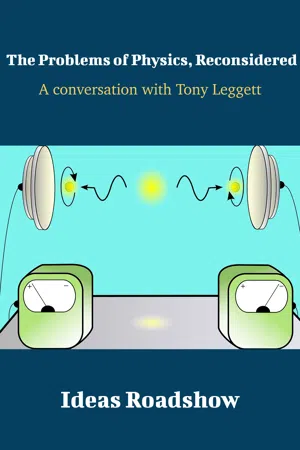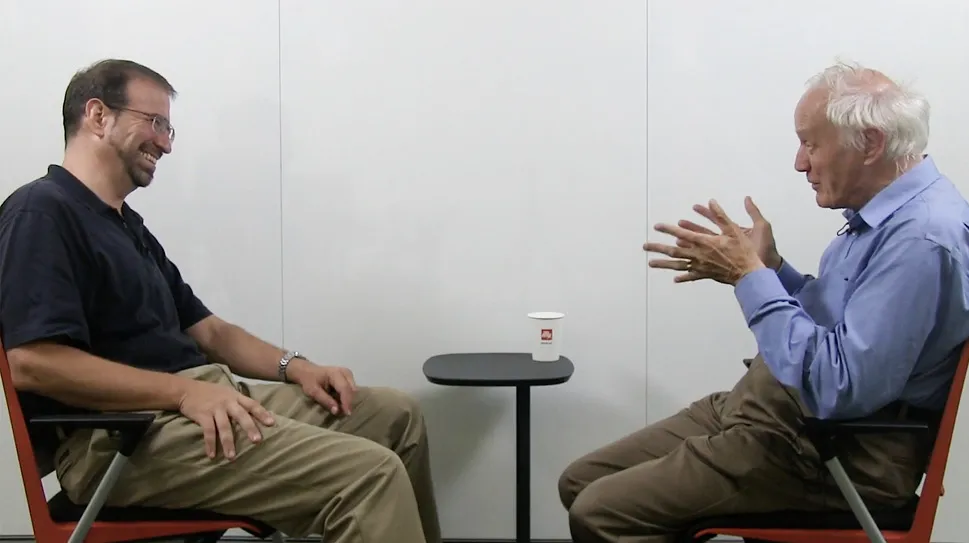
- English
- ePUB (mobile friendly)
- Available on iOS & Android
The Problems of Physics, Reconsidered - A Conversation with Tony Leggett
About this book
This book is based on an in-depth conversation between Howard Burton and Physics Nobel Laureate Tony Leggett. The basis of this conversation is Tony Leggett's book The Problems of Physics and further explores the insightful plain-speaking itemization that he developed of the physics landscape according to four basic categories—the very small (particle physics), the very large (cosmology), the very complex (condensed matter physics) and the very unclear (foundations of quantum theory)—while providing a thoughtful follow-up analysis from a contemporary perspective to assess how much progress we've made and which mysteries remain or have come on the scene since the book was published.This carefully-edited book includes an introduction, The Gentleman Laureate, and questions for discussion at the end of each chapter: I. Back to the Future - Setting the StageII. The Very Small - Much the sameIII. The Very Large - CosmologyIV. A Glassy Digression - The perils of affirming the consequentV. The Very Complex - Condensed matter physics meets quantum informationVI. Understanding - What it actually meansVII. Different Regimes - Nature's ScalesVIII. Schrödinger's Cat - Different domains?IX. The Slings and Arrows of Time - Irreversible?X. The Anthropic Principle - Better left unsaid?XI. The Future of Physics - From Louis Armstrong to topological quantum computingAbout Ideas Roadshow Conversations Series: This book is part of a series of 100 Ideas Roadshow Conversations. Presented in an accessible, conversational format, Ideas Roadshow books not only explore frontline academic research featuring world-leading researchers, including 3 Nobel Laureates, but also reveal the inspirations and personal journeys behind the research.
Frequently asked questions
- Essential is ideal for learners and professionals who enjoy exploring a wide range of subjects. Access the Essential Library with 800,000+ trusted titles and best-sellers across business, personal growth, and the humanities. Includes unlimited reading time and Standard Read Aloud voice.
- Complete: Perfect for advanced learners and researchers needing full, unrestricted access. Unlock 1.4M+ books across hundreds of subjects, including academic and specialized titles. The Complete Plan also includes advanced features like Premium Read Aloud and Research Assistant.
Please note we cannot support devices running on iOS 13 and Android 7 or earlier. Learn more about using the app.
Information
The Conversation

I. Back to the Future
Setting the stage
Questions for Discussion:
- Why do you think that there are so many more popular books on the interpretation of quantum mechanics than other subjects in physics?
- Is writing a popular science book more accepted today than it was 30 years ago? If so, why do you think that is? Are there any disadvantages associated with this change in attitude?
II. The Very Small
Much the same
Questions for Discussion:
- To what extent does the brief discussion of the Higgs boson in this chapter demonstrate the extent to which professional scientists need to trust the opinions and valuations of their colleagues?
- Is the fact that our understanding of particle physics has changed so little in the past few decades evidence of the strength of our current knowledge or the lack of sufficiently probing experiments? Or, somehow, both?
III. The Very Large
Cosmology
Table of contents
- A Note on the Text
- Introduction
- The Conversation
- Continuing the Conversation